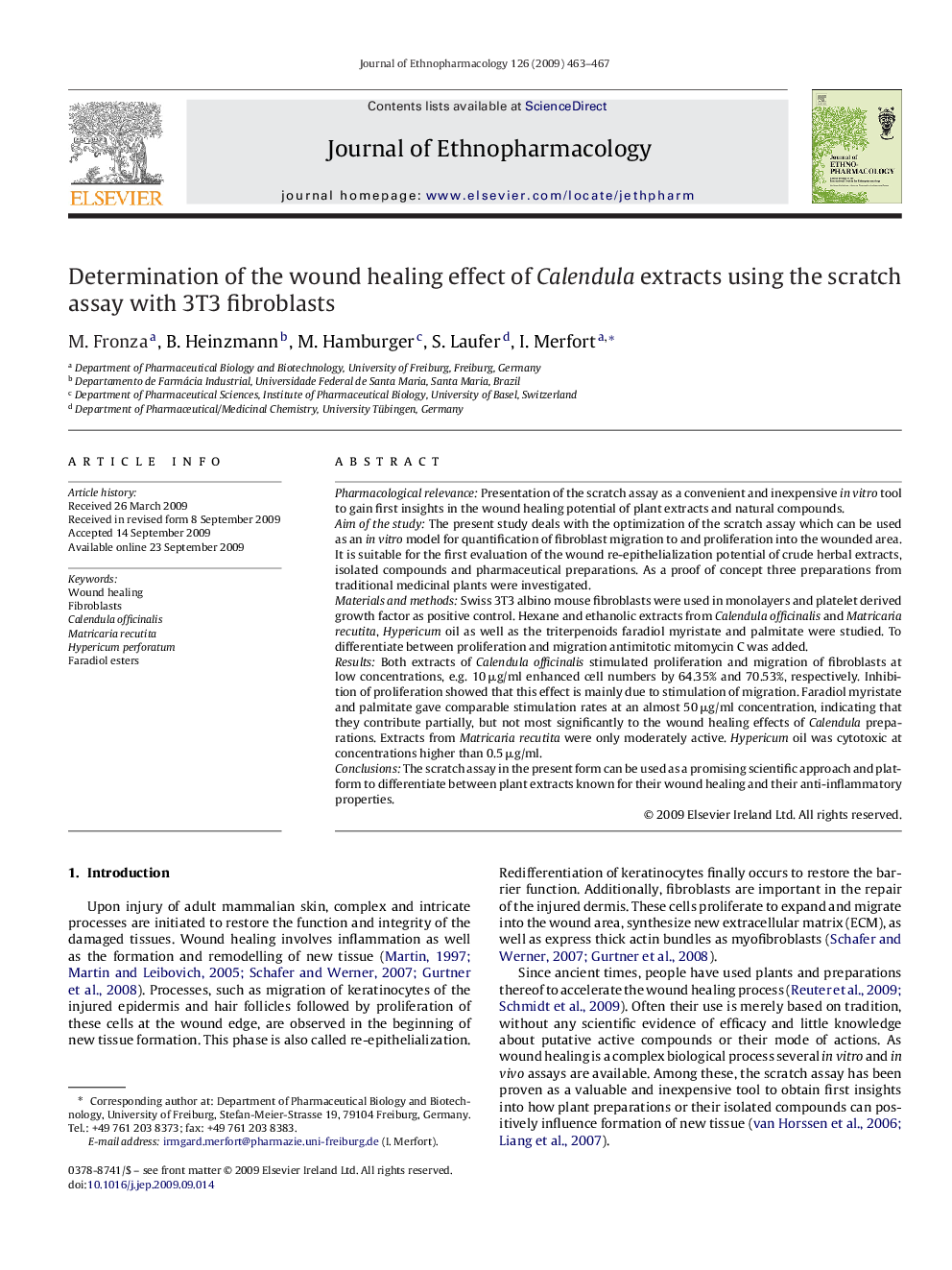| Article ID | Journal | Published Year | Pages | File Type |
|---|---|---|---|---|
| 2546465 | Journal of Ethnopharmacology | 2009 | 5 Pages |
Pharmacological relevancePresentation of the scratch assay as a convenient and inexpensive in vitro tool to gain first insights in the wound healing potential of plant extracts and natural compounds.Aim of the studyThe present study deals with the optimization of the scratch assay which can be used as an in vitro model for quantification of fibroblast migration to and proliferation into the wounded area. It is suitable for the first evaluation of the wound re-epithelialization potential of crude herbal extracts, isolated compounds and pharmaceutical preparations. As a proof of concept three preparations from traditional medicinal plants were investigated.Materials and methodsSwiss 3T3 albino mouse fibroblasts were used in monolayers and platelet derived growth factor as positive control. Hexane and ethanolic extracts from Calendula officinalis and Matricaria recutita, Hypericum oil as well as the triterpenoids faradiol myristate and palmitate were studied. To differentiate between proliferation and migration antimitotic mitomycin C was added.ResultsBoth extracts of Calendula officinalis stimulated proliferation and migration of fibroblasts at low concentrations, e.g. 10 μg/ml enhanced cell numbers by 64.35% and 70.53%, respectively. Inhibition of proliferation showed that this effect is mainly due to stimulation of migration. Faradiol myristate and palmitate gave comparable stimulation rates at an almost 50 μg/ml concentration, indicating that they contribute partially, but not most significantly to the wound healing effects of Calendula preparations. Extracts from Matricaria recutita were only moderately active. Hypericum oil was cytotoxic at concentrations higher than 0.5 μg/ml.ConclusionsThe scratch assay in the present form can be used as a promising scientific approach and platform to differentiate between plant extracts known for their wound healing and their anti-inflammatory properties.
